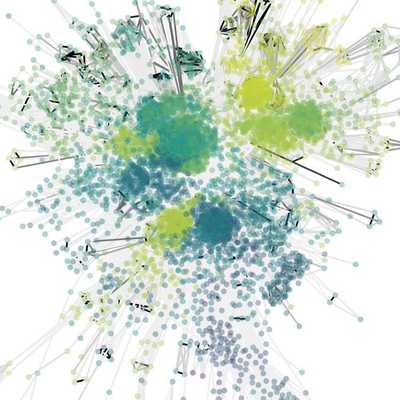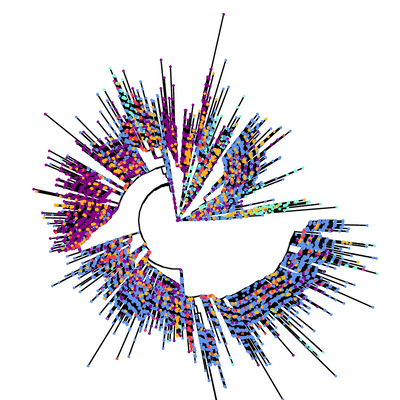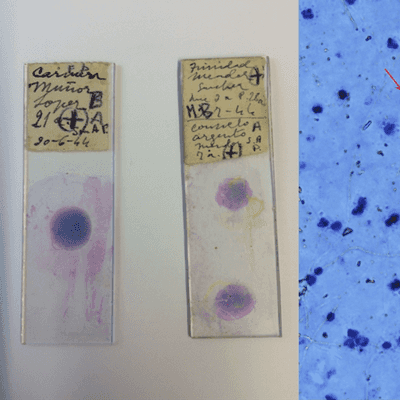Welcome.
Our research aims to contribute to the post-genomic revolution in biology and medicine through the use of computational methods applied to whole genome sequencing data to determine the factors giving rise to the patterns of genetic diversity we observe in human-associated pathogens.
Currently, our work focuses on reconstructing the evolutionary history of significant infectious diseases, including COVID-19, Tuberculosis, Malaria and multidrug-resistant hospital infections. Through the development and application of computational methods we infer the key factors which contribute to disease emergence, spread and transmission. A key aim is to place these reconstructions in strong societal and historical context. This requires addressing to what extent the spread of a specific pathogen might be closely linked to human or animal movements, subsistence practices and trade, but also considers the effect of the introduction of a specific drug or the choice of drug treatment in the clinic.
Therefore our research also covers human demography, migration and admixture history and ultimately aims to connect us to our interactions with infectious disease at both recent eg. the emergence of antimicrobial resistant bacteria and ancient eg. human population structure at the time of the Neolithic revolution, time-scales.
You can find out more by exploring some example research themes and publications.







